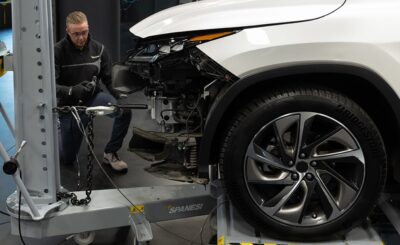In an age where information is power, accessibility to data can be a game-changer. This holds particularly true in the realm of transportation, where understanding the history and specifications of vehicles is crucial for consumers, businesses, and regulatory bodies alike. Universal Vehicle Identification Number (VIN) decoders are emerging as a key tool in democratizing access to this vital information, revolutionizing how we interact with vehicles in the modern world.
Breaking Down Barriers to Information:
Traditionally, obtaining detailed information about a vehicle required navigating through convoluted processes, often involving proprietary databases and specialized knowledge. This presented a significant barrier for consumers looking to make informed purchasing decisions, mechanics diagnosing repairs, or law enforcement officers investigating vehicle-related incidents. Universal VIN decoders are changing this landscape by providing a streamlined and accessible way to decode VINs from any manufacturer.
Empowering Consumers
One of the most significant impacts of universal VIN decoders is the empowerment of consumers. These tools enable individuals to gain comprehensive insights into the history and specifications of vehicles they are interested in purchasing, without relying on third-party services or specialized knowledge. From understanding a vehicle’s maintenance history to verifying its authenticity, consumers can make more informed decisions and negotiate from a position of knowledge.
Leveling the Playing Field
Universal VIN decoders also level the playing field for businesses operating in the transportation sector. Fleet managers can efficiently manage their vehicle inventories, insurance companies can accurately assess risk factors, and dealerships can provide transparent information to potential buyers. By democratizing access to vehicle data, these decoders promote fair competition and facilitate smoother transactions across the industry.
Streamlining Regulatory Processes
Regulatory bodies and government agencies are also benefiting from the accessibility offered by universa VIN decoder. These tools simplify the process of verifying vehicle registration, tracking compliance with safety standards, and investigating vehicle-related incidents. By automating VIN decoding and data retrieval, regulatory processes become more efficient, allowing resources to be allocated more effectively towards ensuring public safety and enforcing regulations.
Challenges and Considerations:
While universal VIN decoders hold immense promise, they also raise important considerations regarding data privacy, security, and standardization. As these tools become more widespread, it’s crucial to ensure that personal information is protected and that data is handled in a transparent and ethical manner. Additionally, efforts to standardize data formats and ensure the accuracy of decoded information will be essential for maximizing the potential benefits of universal VIN decoders.
Conclusion
As technology continues to evolve, the potential applications of universal VIN decoders will only expand. From integrating with emerging technologies like autonomous vehicles to facilitating cross-border transportation, these tools are poised to play a central role in shaping the future of transportation. By democratizing access to vehicle information, universal VIN decoders empower individuals and organizations alike to navigate the complexities of the modern transportation landscape with confidence and clarity.








